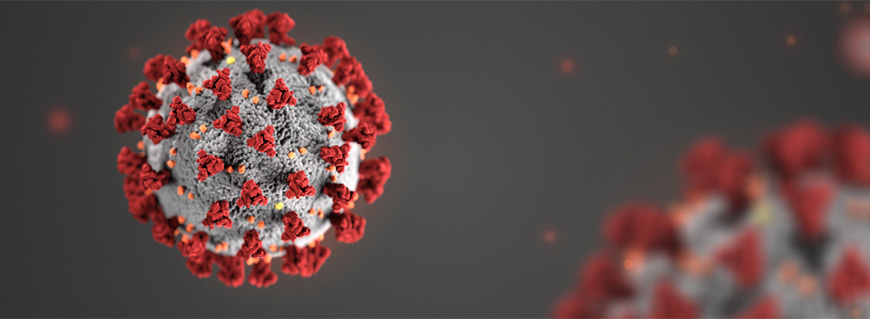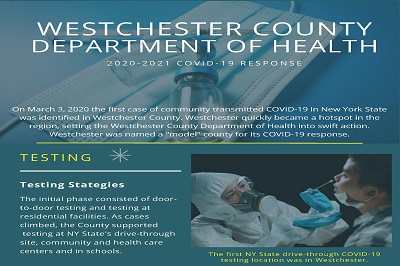
For a current COVID-19 case count in New York State with a breakdown by county, visit the NYSDOH COVID-19 Positive Tests Over Time, By Region and County. Information and guidance about COVID-19 for health care providers can be found on our Physician's Corner. 
This infographic provides a summary of the Westchester County Department of Health’s leadership and response to the COVID-19 public health emergency for the period of 2020-2021.
COVID Vaccine Clinics
Please be advised that we are no longer able to provide COVID vaccine to everyone interested in receiving it at our clinics. As a safety net provider, COVID vaccines are now only available to children eligible for the Vaccines for Children program. If you meet this criteria, you can make an appointment at one of our vaccine clinics by calling (914) 995-5800. If you have health insurance, you are able to get a COVID vaccine at places where you would normally go to get vaccines, such as at pharmacies and medical provider offices. Use the Vaccine Finder Tool to schedule a COVID vaccine near you.
COVID-19 and Flu Resources
Vaccination Clinic Registration and Information (Ages 6 months and up)COVID-19 and Flu Treatments Locator
COVID-19 and Flu Treatments Locator This locator tool displays pharmacies, clinics, and other locations with safe and effective COVID-19 and flu medications. These medications require a prescription from a healthcare provider. Please note that COVID-19 and flu medications may also be available at additional locations not shown on this locator.
Testing and Treatment Information
Quarantine and Isolation Guidance
WCDH Coronavirus Updates (school resources, data and more)
Find your COVID-19 community levels (low, medium, or high), and prevention steps to take based on the latest CDC data.
In-Season Estimates for Respiratory Viruses (CDC)
COVID-19 Treatment is Available
Oral antiviral medications are available for treatment of COVID-19 and have been proven to decrease hospitalization for those that are at risk for severe disease. When given soon after a positive diagnosis, these antivirals also help fight infection and shorten recovery time. All treatments require a prescription and those who test COVID-19 positive should talk to their health care provider.
Westchester County residents who test positive and do not have a health care provider, regardless of income or health insurance coverage, are eligible to be evaluated for treatment by calling 888-TREAT-NY (888-873-2869) or completing an evaluation at the NYS COVID-19 ExpressCare Therapeutics Access website, which includes a telemedicine visit. The Hotline is available 24-hours per day, seven days a week and operated by experienced Health + Hospitals professionals who have the clinical training to prescribe treatment and referrals if needed.

